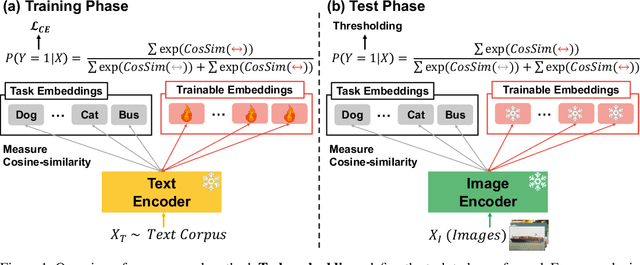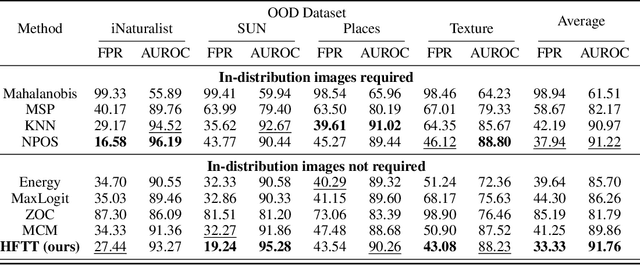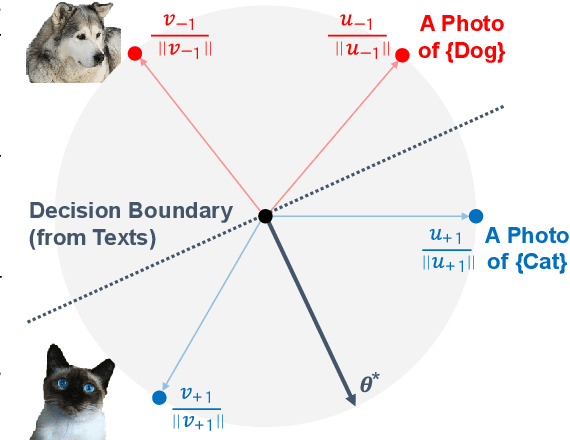Yongho Shin
Post-Training and Test-Time Scaling of Generative Agent Behavior Models for Interactive Autonomous Driving
Dec 15, 2025Abstract:Learning interactive motion behaviors among multiple agents is a core challenge in autonomous driving. While imitation learning models generate realistic trajectories, they often inherit biases from datasets dominated by safe demonstrations, limiting robustness in safety-critical cases. Moreover, most studies rely on open-loop evaluation, overlooking compounding errors in closed-loop execution. We address these limitations with two complementary strategies. First, we propose Group Relative Behavior Optimization (GRBO), a reinforcement learning post-training method that fine-tunes pretrained behavior models via group relative advantage maximization with human regularization. Using only 10% of the training dataset, GRBO improves safety performance by over 40% while preserving behavioral realism. Second, we introduce Warm-K, a warm-started Top-K sampling strategy that balances consistency and diversity in motion selection. Our Warm-K method-based test-time scaling enhances behavioral consistency and reactivity at test time without retraining, mitigating covariate shift and reducing performance discrepancies. Demo videos are available in the supplementary material.
Learning-Augmented Online Bipartite Fractional Matching
May 25, 2025Abstract:Online bipartite matching is a fundamental problem in online optimization, extensively studied both in its integral and fractional forms due to its theoretical significance and practical applications, such as online advertising and resource allocation. Motivated by recent progress in learning-augmented algorithms, we study online bipartite fractional matching when the algorithm is given advice in the form of a suggested matching in each iteration. We develop algorithms for both the vertex-weighted and unweighted variants that provably dominate the naive "coin flip" strategy of randomly choosing between the advice-following and advice-free algorithms. Moreover, our algorithm for the vertex-weighted setting extends to the AdWords problem under the small bids assumption, yielding a significant improvement over the seminal work of Mahdian, Nazerzadeh, and Saberi (EC 2007, TALG 2012). Complementing our positive results, we establish a hardness bound on the robustness-consistency tradeoff that is attainable by any algorithm. We empirically validate our algorithms through experiments on synthetic and real-world data.
Improved Algorithms for Overlapping and Robust Clustering of Edge-Colored Hypergraphs: An LP-Based Combinatorial Approach
May 23, 2025Abstract:Clustering is a fundamental task in both machine learning and data mining. Among various methods, edge-colored clustering (ECC) has emerged as a useful approach for handling categorical data. Given a hypergraph with (hyper)edges labeled by colors, ECC aims to assign vertex colors to minimize the number of edges where the vertex color differs from the edge's color. However, traditional ECC has inherent limitations, as it enforces a nonoverlapping and exhaustive clustering. To tackle these limitations, three versions of ECC have been studied: Local ECC and Global ECC, which allow overlapping clusters, and Robust ECC, which accounts for vertex outliers. For these problems, both linear programming (LP) rounding algorithms and greedy combinatorial algorithms have been proposed. While these LP-rounding algorithms provide high-quality solutions, they demand substantial computation time; the greedy algorithms, on the other hand, run very fast but often compromise solution quality. In this paper, we present an algorithmic framework that combines the strengths of LP with the computational efficiency of combinatorial algorithms. Both experimental and theoretical analyses show that our algorithms efficiently produce high-quality solutions for all three problems: Local, Global, and Robust ECC. We complement our algorithmic contributions with complexity-theoretic inapproximability results and integrality gap bounds, which suggest that significant theoretical improvements are unlikely. Our results also answer two open questions previously raised in the literature.
Textual Training for the Hassle-Free Removal of Unwanted Visual Data
Sep 30, 2024



Abstract:In our study, we explore methods for detecting unwanted content lurking in visual datasets. We provide a theoretical analysis demonstrating that a model capable of successfully partitioning visual data can be obtained using only textual data. Based on the analysis, we propose Hassle-Free Textual Training (HFTT), a streamlined method capable of acquiring detectors for unwanted visual content, using only synthetic textual data in conjunction with pre-trained vision-language models. HFTT features an innovative objective function that significantly reduces the necessity for human involvement in data annotation. Furthermore, HFTT employs a clever textual data synthesis method, effectively emulating the integration of unknown visual data distribution into the training process at no extra cost. The unique characteristics of HFTT extend its utility beyond traditional out-of-distribution detection, making it applicable to tasks that address more abstract concepts. We complement our analyses with experiments in out-of-distribution detection and hateful image detection. Our codes are available at https://github.com/Saehyung-Lee/HFTT
On Optimal Consistency-Robustness Trade-Off for Learning-Augmented Multi-Option Ski Rental
Dec 05, 2023Abstract:The learning-augmented multi-option ski rental problem generalizes the classical ski rental problem in two ways: the algorithm is provided with a prediction on the number of days we can ski, and the ski rental options now come with a variety of rental periods and prices to choose from, unlike the classical two-option setting. Subsequent to the initial study of the multi-option ski rental problem (without learning augmentation) due to Zhang, Poon, and Xu, significant progress has been made for this problem recently in particular. The problem is very well understood when we relinquish one of the two generalizations -- for the learning-augmented classical ski rental problem, algorithms giving best-possible trade-off between consistency and robustness exist; for the multi-option ski rental problem without learning augmentation, deterministic/randomized algorithms giving the best-possible competitiveness have been found. However, in presence of both generalizations, there remained a huge gap between the algorithmic and impossibility results. In fact, for randomized algorithms, we did not have any nontrivial lower bounds on the consistency-robustness trade-off before. This paper bridges this gap for both deterministic and randomized algorithms. For deterministic algorithms, we present a best-possible algorithm that completely matches the known lower bound. For randomized algorithms, we show the first nontrivial lower bound on the consistency-robustness trade-off, and also present an improved randomized algorithm. Our algorithm matches our lower bound on robustness within a factor of e/2 when the consistency is at most 1.086.
Improved Learning-Augmented Algorithms for the Multi-Option Ski Rental Problem via Best-Possible Competitive Analysis
Feb 14, 2023
Abstract:In this paper, we present improved learning-augmented algorithms for the multi-option ski rental problem. Learning-augmented algorithms take ML predictions as an added part of the input and incorporates these predictions in solving the given problem. Due to their unique strength that combines the power of ML predictions with rigorous performance guarantees, they have been extensively studied in the context of online optimization problems. Even though ski rental problems are one of the canonical problems in the field of online optimization, only deterministic algorithms were previously known for multi-option ski rental, with or without learning augmentation. We present the first randomized learning-augmented algorithm for this problem, surpassing previous performance guarantees given by deterministic algorithms. Our learning-augmented algorithm is based on a new, provably best-possible randomized competitive algorithm for the problem. Our results are further complemented by lower bounds for deterministic and randomized algorithms, and computational experiments evaluating our algorithms' performance improvements.
 Add to Chrome
Add to Chrome Add to Firefox
Add to Firefox Add to Edge
Add to Edge